
Lamap: The Hidden Gem of Vanuatu
Nestled on the island of Malekula, Lamap is a serene and picturesque village that offers an authentic taste of Vanuatu's natural beauty and rich culture. This hidden gem is a haven for those seeking tranquility, adventure, and a glimpse into traditional Melanesian life. Lamap is renowned for its breathtaking landscapes, from pristine beaches to lush rainforests. The crystal-clear waters and vibrant coral reefs make it a paradise for snorkeling and diving enthusiasts. Explore the underwater world teeming with colorful marine life, or simply relax on the soft sands and soak in the tropical sun. The village itself is a charming tapestry of local culture and history. Visitors can immerse themselves in traditional customs, dance, and music, often performed by the warm and welcoming locals. The nearby Norsup Airport provides convenient access, making Lamap a perfect starting point for exploring the rest of Malekula and Vanuatu. For the adventurous, Lamap offers numerous hiking trails that lead through the verdant jungle, past cascading waterfalls, and up to stunning viewpoints. Wildlife enthusiasts will delight in spotting exotic birds and other native species that inhabit the area. Don't miss the chance to visit the local markets, where you can find an array of fresh produce, handmade crafts, and unique souvenirs.
Local tips in Lamap
- Bring cash, as ATMs and card facilities are limited in Lamap.
- Respect local customs and traditions. Dress modestly when visiting villages.
- Hire a local guide for the best hiking and cultural experiences.
- Visit during the dry season (May to October) for the best weather.
- Try the local kava drink, a traditional beverage with cultural significance.
Lamap: The Hidden Gem of Vanuatu
Nestled on the island of Malekula, Lamap is a serene and picturesque village that offers an authentic taste of Vanuatu's natural beauty and rich culture. This hidden gem is a haven for those seeking tranquility, adventure, and a glimpse into traditional Melanesian life. Lamap is renowned for its breathtaking landscapes, from pristine beaches to lush rainforests. The crystal-clear waters and vibrant coral reefs make it a paradise for snorkeling and diving enthusiasts. Explore the underwater world teeming with colorful marine life, or simply relax on the soft sands and soak in the tropical sun. The village itself is a charming tapestry of local culture and history. Visitors can immerse themselves in traditional customs, dance, and music, often performed by the warm and welcoming locals. The nearby Norsup Airport provides convenient access, making Lamap a perfect starting point for exploring the rest of Malekula and Vanuatu. For the adventurous, Lamap offers numerous hiking trails that lead through the verdant jungle, past cascading waterfalls, and up to stunning viewpoints. Wildlife enthusiasts will delight in spotting exotic birds and other native species that inhabit the area. Don't miss the chance to visit the local markets, where you can find an array of fresh produce, handmade crafts, and unique souvenirs.
When is the best time to go to Lamap?
Iconic landmarks you can’t miss
Evergreen Cascades Waterfall
Experience the breathtaking beauty of Evergreen Cascades Waterfall, a serene escape into nature's wonders in Vanuatu's lush landscapes.
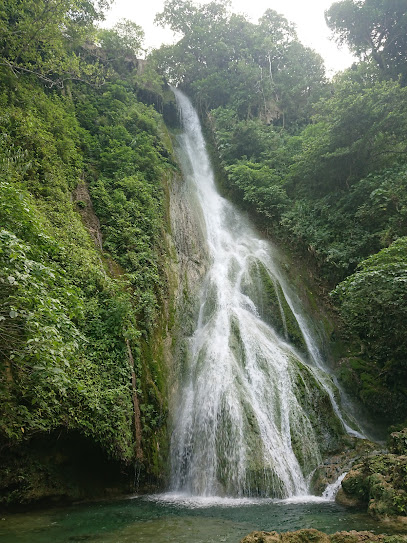
The Havannah Vanuatu
Experience luxury and tranquility at The Havannah Vanuatu, where breathtaking ocean views meet exceptional service in a tropical paradise.
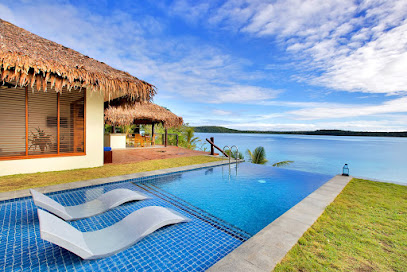
Vanuatu National Museum
Explore Vanuatu's vibrant culture at the National Museum, where history and heritage come alive through engaging exhibits and local artistry.
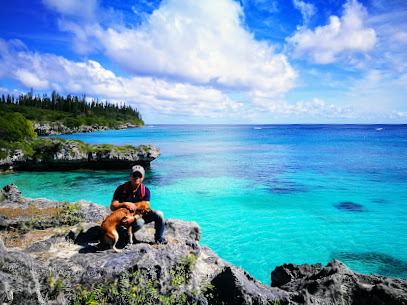
Eden on the River
Experience the enchanting beauty of Eden on the River, a premier tourist attraction in Vanuatu, offering adventure, relaxation, and stunning landscapes.
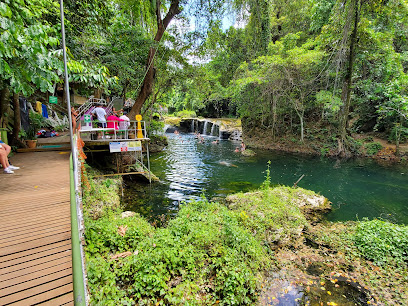
Nanda Blue Hole
Explore the enchanting Nanda Blue Hole in Vanuatu, a serene escape with crystal-clear waters and vibrant marine life, perfect for relaxation and adventure.
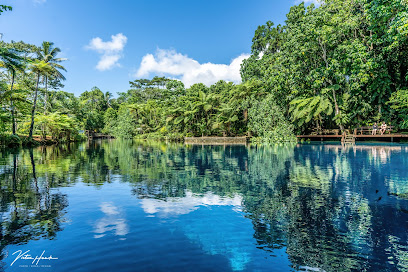
Matevulu Blue Hole
Experience the mesmerizing beauty of Matevulu Blue Hole, Vanuatu's stunning natural swimming oasis, perfect for relaxation and adventure.
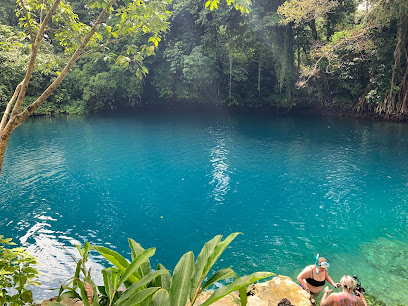
Naiwe Beach at Blue Water
Discover the breathtaking beauty of Naiwe Beach at Blue Water, a tranquil paradise on Efate Island, perfect for relaxation and adventure.
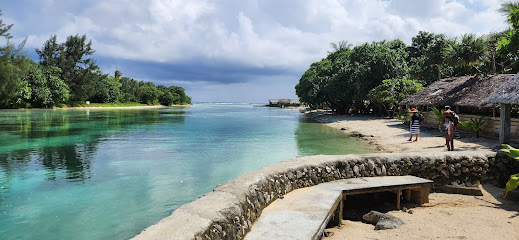
Million Dollar Point
Explore Million Dollar Point in Luganville, Vanuatu - a captivating blend of World War II history and vibrant underwater marine life.
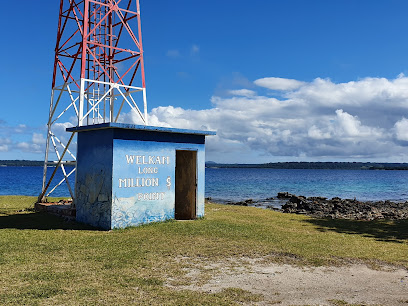
Riri Blue Hole
Discover the tranquil beauty of Riri Blue Hole, a stunning natural wonder in Espiritu Santo, Vanuatu, perfect for swimming and relaxation.
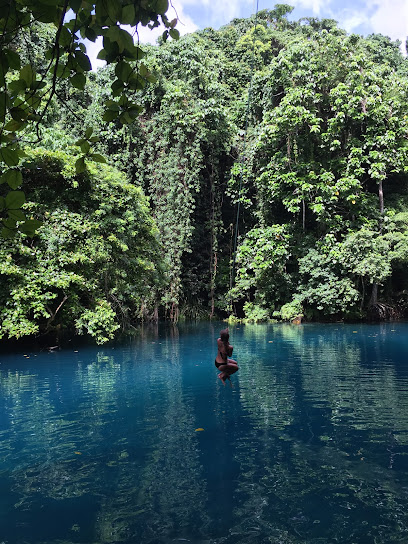
Millennium Cave
Discover the breathtaking landscapes and fascinating rock formations of Millennium Cave, a must-visit hiking area in Fwimatal, Vanuatu.
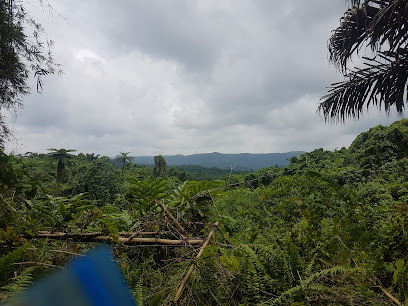
Aore Adventure Sports & Lodge
Discover a tropical paradise at Aore Adventure Sports & Lodge, your gateway to thrilling diving adventures and luxurious island relaxation in Vanuatu.
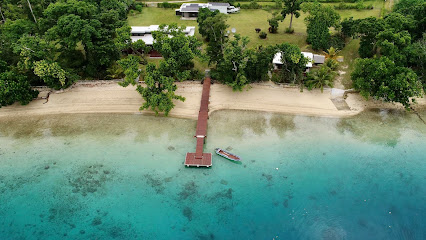
Club Hippique Adventure Park
Experience the breathtaking beauty of Etmat Bay with horse riding adventures and picturesque beach weddings at Club Hippique Adventure Park.
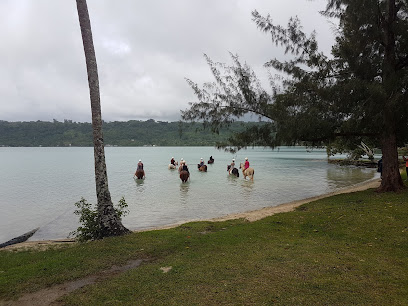
Rarru Rentapao River Cascade Tours
Explore the breathtaking cascades and lush landscapes of Rarru Rentapao River Cascade Tours, a premier adventure destination in Port Vila, Vanuatu.
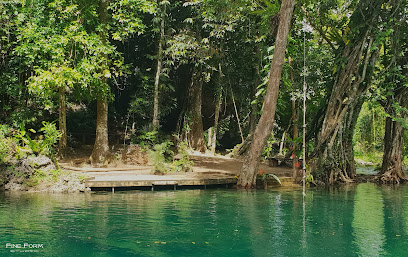
Santo Horse Adventures
Experience the breathtaking beauty of Vanuatu on horseback with Santo Horse Adventures, where unforgettable journeys await amidst stunning landscapes.
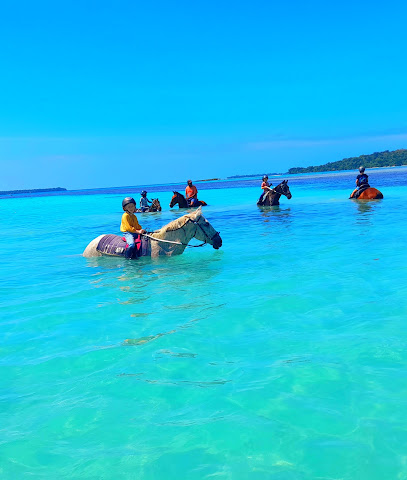
Lope Lope Beach Bungalows
Experience the tranquil paradise of Lope Lope Beach Bungalows in Vanuatu, where relaxation meets adventure in stunning natural surroundings.
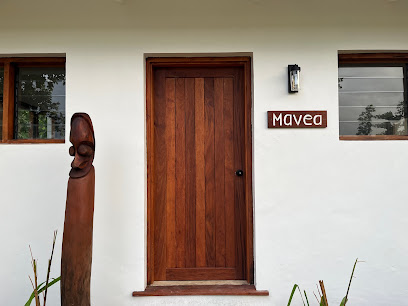
Unmissable attractions to see
Vanuatu Sky Bridge
Discover the breathtaking Vanuatu Sky Bridge, where adventure meets stunning views in the heart of Vanuatu's lush jungles.
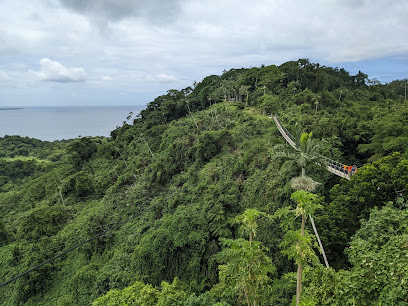
Siviri Caves
Discover the stunning Siviri Caves in Vanuatu, where nature's beauty meets rich cultural heritage on the serene Efate Island.
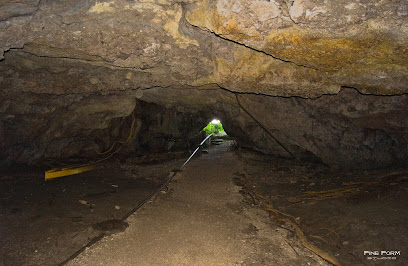
Island Fishing Santo
Discover the beauty of fishing in the pristine waters of Espiritu Santo at Island Fishing Santo, where adventure meets local culture.
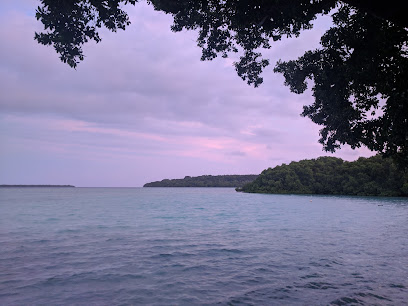
SS président coolidge
Discover the enchanting SS Président Coolidge, a historic shipwreck in Vanuatu, perfect for diving and snorkeling amidst rich marine life.

Gorgonian Garden Dive
Discover the mesmerizing underwater paradise of Gorgonian Garden Dive in Luganville, Vanuatu, where vibrant marine life and stunning coral gardens await.

Amal Crab Bay Ecological Education Centre
Explore the rich biodiversity at Amal Crab Bay Ecological Education Centre, where nature and education intertwine in the heart of Malekula Island's scenic landscapes.

Manaro Park
Explore the tranquility of Manaro Park in Luganville, Vanuatu, a perfect blend of lush nature and outdoor activities for tourists.

Traditional village
Explore the vibrant culture and stunning landscapes of Lownapek's traditional village, a captivating destination in Vanuatu.

Taloa Marine Protected Area
Explore the breathtaking beauty of Taloa Marine Protected Area, a haven for marine life and a paradise for eco-tourists in Tikilas, Vanuatu.

Santo Friendly Tours
Explore Santo Friendly Tours in Vanuatu for an unforgettable adventure through stunning landscapes and vibrant local culture.
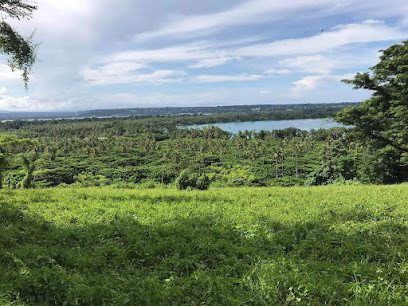
Essential places to dine
The Beach Bar
Discover family-friendly dining at The Beach Bar in Mele – where delicious food meets stunning ocean views!
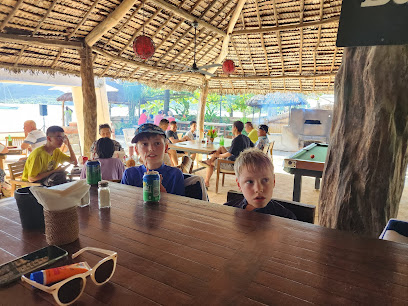
The Stonegrill Restaurant
Discover unique dining at The Stonegrill Restaurant in Port Vila - where you cook your meal on volcanic stones amidst stunning views.
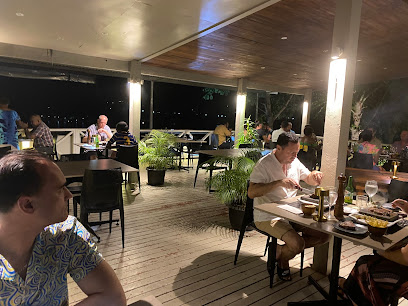
Rossi's
Discover Rossi's in Port Vila: A delightful restaurant offering delicious local cuisine and exquisite coffee amidst vibrant surroundings.
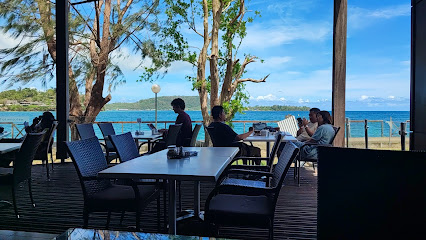
Reefers Restaurant & Rum Bar
Experience vibrant flavors and breathtaking views at Reefers Restaurant & Rum Bar in Port Vila – your gateway to Vanuatu's culinary delights.
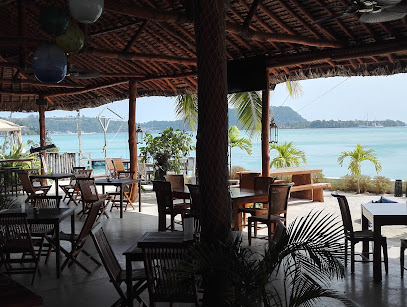
L'Houstalet Restaurant
Discover the culinary delights at L'Houstalet Restaurant in Port Vila - where French cuisine meets Vanuatu's freshest ingredients.
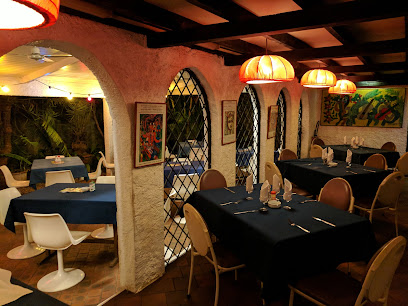
Cafe Vila
Experience culinary bliss at Café Vila in Port Vila - where stunning ocean views meet delectable local and international cuisine.
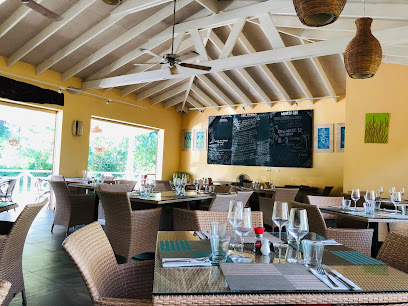
The Moso
Discover tranquility at The Moso: A stunning resort hotel on Moso Island offering exquisite dining, refreshing drinks, and breathtaking ocean views.
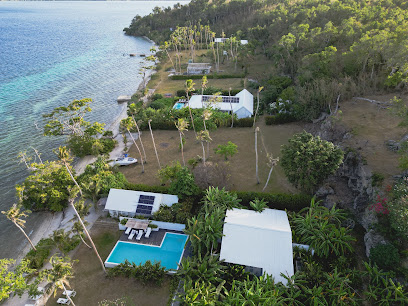
Kesorn‘s Exotic Thai Restaurant
Experience authentic Thai cuisine in Port Vila at Kesorn's Exotic Thai Restaurant - where every dish tells a story.
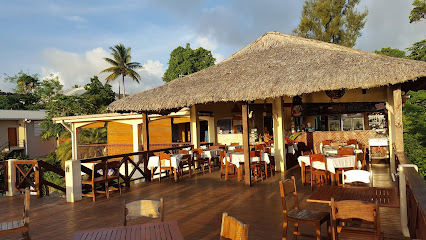
Pizza Hot AU Faré
Experience Vanuatu's vibrant culinary scene at Pizza Hot AU Faré – where delicious pizzas meet tropical vibes in Port Vila.
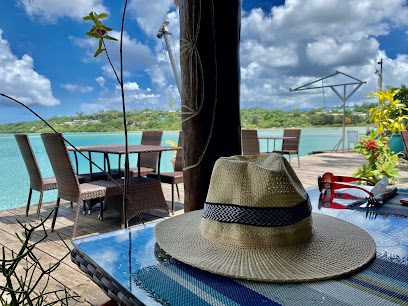
Pad Thai Port Vila
Savor authentic Thai cuisine with breathtaking ocean views at Pad Thai Port Vila in Vanuatu.
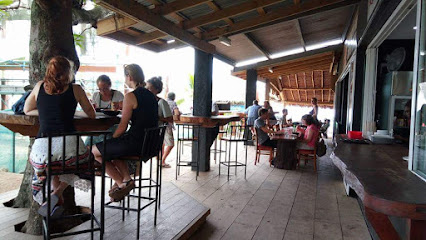
Paradise Cove Resort
Discover luxury and tranquility at Paradise Cove Resort in Port Vila - your gateway to Vanuatu's stunning landscapes and rich culture.
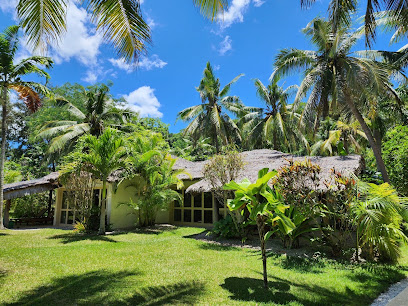
Three Pigs
Experience the vibrant flavors of Vanuatu at Three Pigs in Port Vila - where delightful dishes meet tropical ambiance.
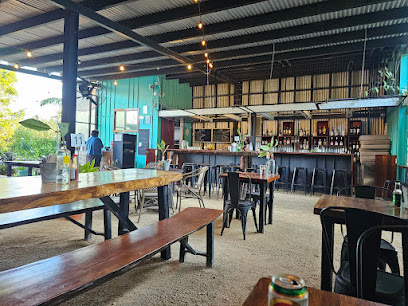
HARBOUR VIEW
Experience exquisite local cuisine while enjoying breathtaking harbor views at Harbour View in Port Vila.
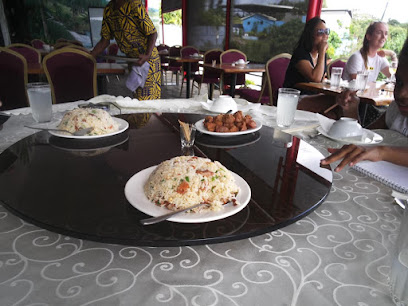
Vila Chaumières Restaurant & Resort
Experience tropical dining bliss at Vila Chaumières Restaurant & Resort - where local flavors meet breathtaking views.
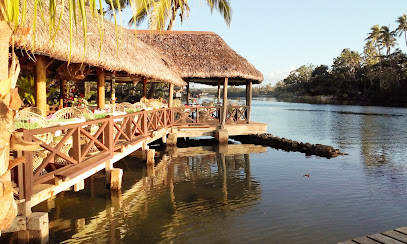
Le Life Resort, Vanuatu
Experience culinary excellence and serene landscapes at Le Life Resort in Vanuatu - where every meal is a celebration.

Markets, malls and hidden boutiques
Fung Kuei Duty Free
Discover unbeatable prices on liquor, unique souvenirs, and more at Fung Kuei Duty Free in Port Vila, your ultimate shopping destination.
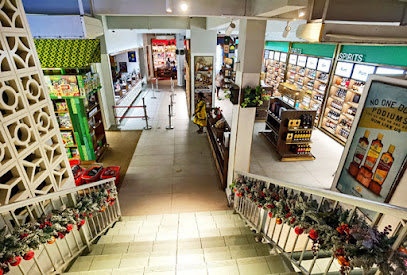
Paris Shopping - Duty Free Vanuatu
Explore Duty Free Vanuatu for an exquisite shopping experience, showcasing luxury products without the tax, right in Port Vila.
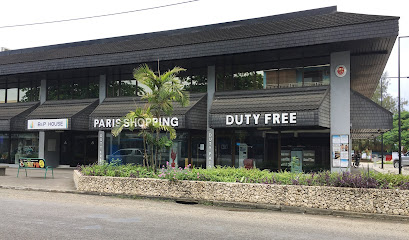
Pandanus Vanuatu Ltd
Explore the enchanting Pandanus Vanuatu Ltd for handcrafted handbags, exquisite jewelry, stylish shoes, and authentic souvenirs reflecting Vanuatu's vibrant culture.
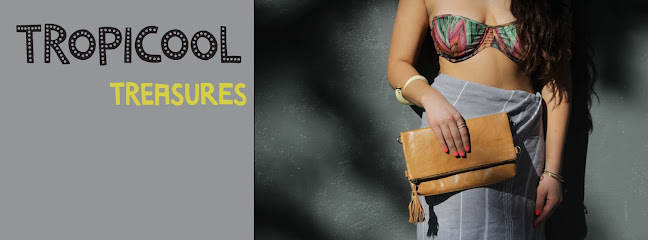
Handicraft Market
Discover unique crafts and immerse yourself in Vanuatu's culture at the Handicraft Market in Port Vila, a vibrant hub of local artistry.
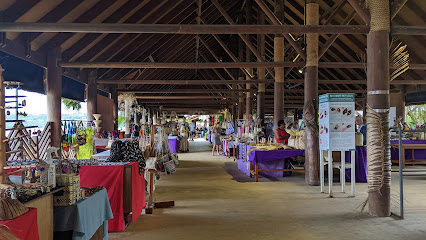
Foro Store
Discover authentic Vanuatu at Foro Store, your go-to grocery store for fresh produce and local delicacies on Mele Road.

ACTIV Shop
Explore the vibrant world of Vanuatu's craftsmanship at ACTIV Shop, where every handmade piece tells a unique story.
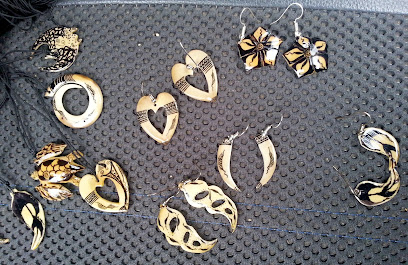
Tousi Cooperative Store
Explore the vibrant Tousi Cooperative Store in Magam, where local culture, unique crafts, and warm hospitality await every visitor.

Tautu Shopping Center
Explore the vibrant Tautu Shopping Center in Norsup for local delights, souvenirs, and essential goods in a welcoming atmosphere.
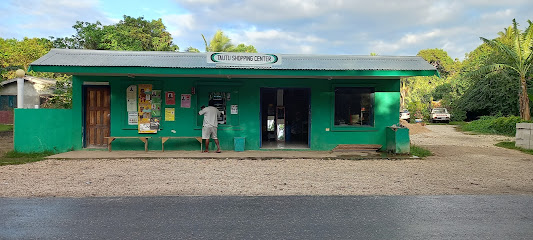
Endu Shopping Center
Discover unique local crafts and international brands at Endu Shopping Center, a vibrant retail hub in Vanuatu's Endu Pahakol.

Malampa Butcher and Fish Market
Experience the vibrant flavors of Vanuatu at Malampa Butcher and Fish Market, where fresh meats and seafood await your culinary exploration.

QQ STORE
Explore the bustling QQ Store, a shopping paradise in Efate where vibrant culture meets diverse retail offerings for every traveler.
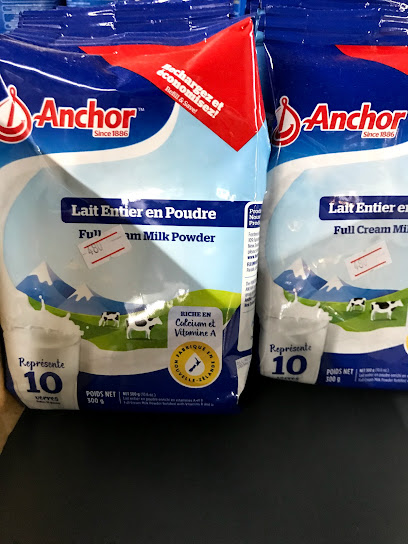
Vanuatu Souvenirs
Explore Vanuatu Souvenirs in Port Vila – your gateway to unique handcrafted treasures and authentic local art.
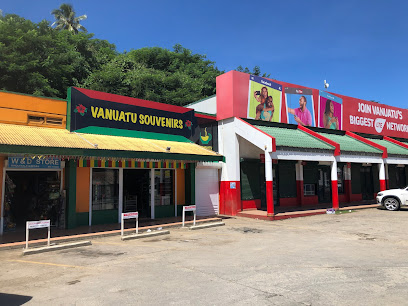
Malampa Handicraft Centre
Explore unique handicrafts and immerse yourself in Vanuatu's rich culture at the Malampa Handicraft Centre in Lakatoro.

Scrunchies & Sunshine
Explore the vibrant world of handmade accessories at Scrunchies & Sunshine in Mele Village, Efate, capturing the spirit of Vanuatu in every piece.
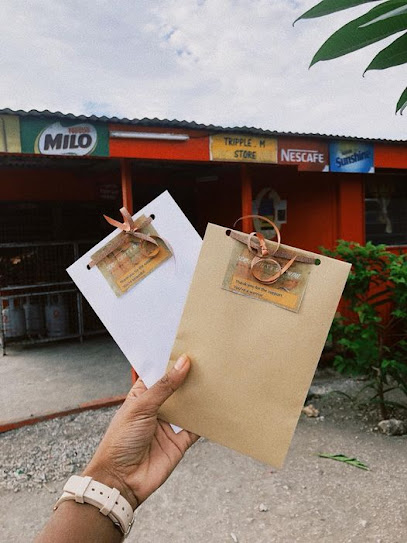
Carrie Shopping
Discover unique souvenirs and local crafts at Carrie Shopping in Port Vila, a treasure trove of Vanuatu's cultural heritage.
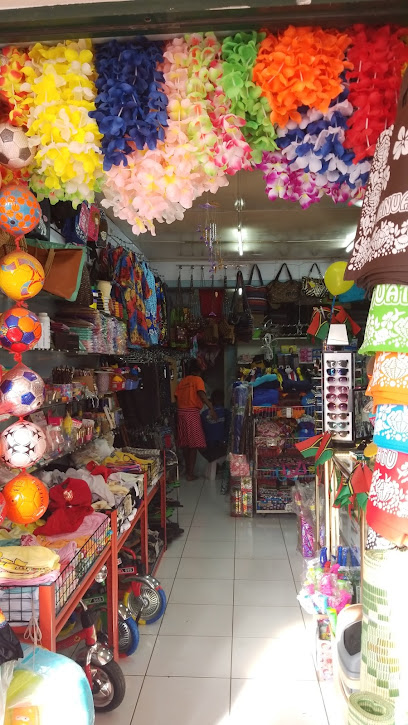
Essential bars & hidden hideouts
The Beach Bar
Experience the vibrant charm of The Beach Bar in Mele, Vanuatu, a family-friendly spot with stunning ocean views and delicious local cuisine.
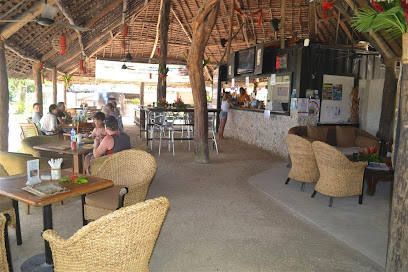
Reefers Restaurant & Rum Bar
Discover the vibrant flavors of Vanuatu at Reefers Restaurant & Rum Bar, where exquisite dining meets breathtaking waterfront views.
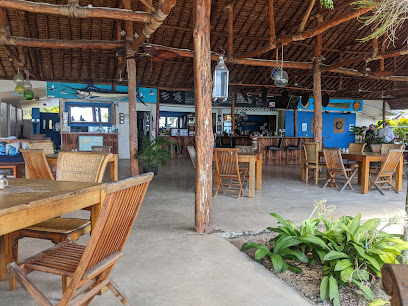
War Horse Saloon
Experience the lively nightlife at War Horse Saloon, a vibrant bar in Port Vila, Vanuatu, where locals and travelers come together to unwind and socialize.
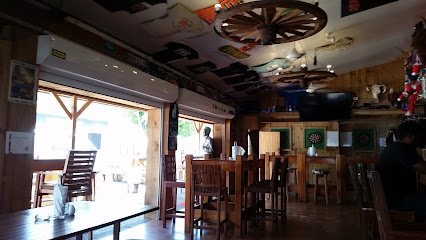
Banyan Beach Bar
Banyan Beach Bar: A Tropical Escape in Port Vila Offering Refreshing Drinks and Stunning Ocean Views.
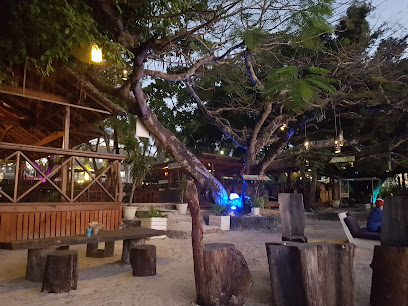
The Retreat Seaside Sports Bar & Resort
Experience the vibrant atmosphere and delicious cuisine at The Retreat Seaside Sports Bar & Resort in Port Vila, a must-visit for all travelers.
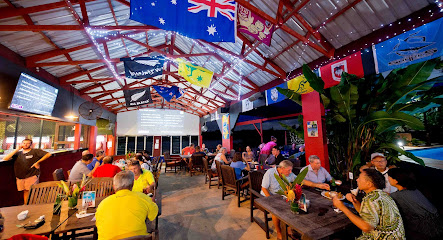
Gideons Landing Restaurant
Discover the flavors of Vanuatu at Gideons Landing Restaurant, a dining experience blending local cuisine with breathtaking natural beauty.
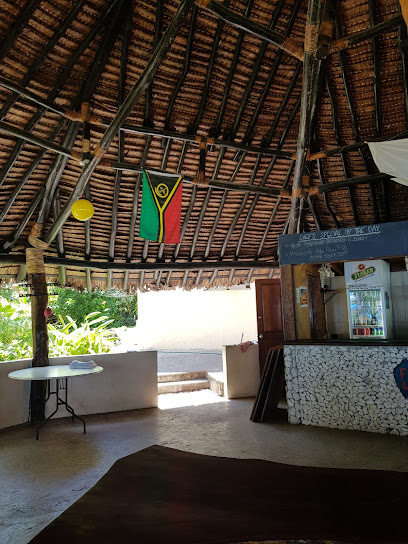
Stone Lounge
Discover Stone Lounge, Port Vila's vibrant cocktail bar serving creative drinks in a welcoming atmosphere perfect for relaxation and socializing.
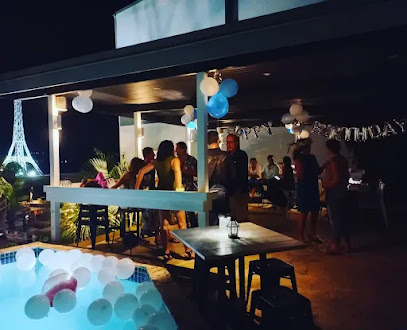
Kava Lounge
Experience the vibrant essence of Vanuatu at Kava Lounge in Port Vila, where locals and tourists enjoy the unique flavors of kava in a lively atmosphere.
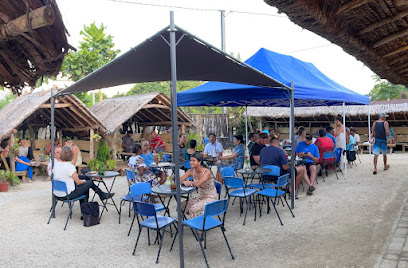
Black Pearl Resort & Spa
Experience luxury and adventure at Black Pearl Resort & Spa, a serene paradise in the heart of Vanuatu offering stunning ocean views and premier amenities.

Local Kava Bar
Discover the rich tradition of kava drinking at the Local Kava Bar in Port Vila, an authentic experience that showcases Vanuatu's vibrant culture.
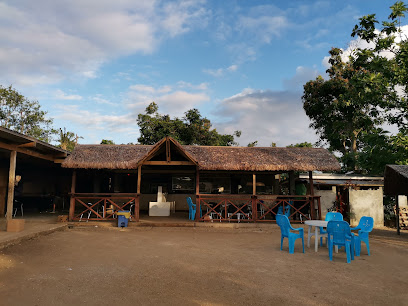
El Manaro Kava Bar
Experience authentic Vanuatu culture at El Manaro Kava Bar, the premier destination for Kava lovers in Port Vila.
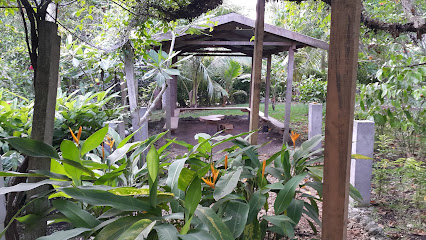
Point Lookout Restaurant & Bar
Experience the essence of Vanuatu with exquisite local cuisine and breathtaking views at Point Lookout Restaurant & Bar.

Will Smith Kava Bar
Experience the authentic taste of Vanuatu at Will Smith Kava Bar, a vibrant spot in Lenakel for kava lovers and cultural enthusiasts alike.
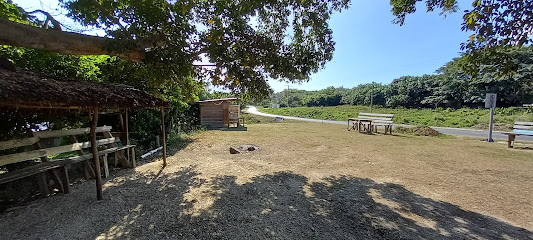
Chez Marius Kava Bar
Experience the heart of Vanuatu culture at Chez Marius Kava Bar, where locals and tourists gather to enjoy authentic kava in a vibrant atmosphere.
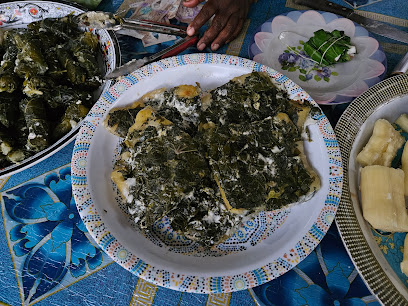
Local Phrases
-
- HelloHalo
[ha-lo] - GoodbyeOro
[o-ro] - YesIoe
[i-o-e] - NoTata
[ta-ta] - Please/You're welcomePlis
[plis] - Thank youTankiu
[tan-kiu] - Excuse me/SorrySori
[so-ri] - How are you?Yu stap gut?
[yu stap gut] - Fine. And you?Gut. Yu?
[gut. yu] - Do you speak English?Yu save toktok long Inglish?
[yu sa-ve tok-tok long in-glish] - I don't understandMi no save
[mi no sa-ve]
- HelloHalo
-
- I'd like to see the menu, pleaseMi wantem lukim menu, plis
[mi wan-tem lu-kim me-nu, plis] - I don't eat meatMi no kakae mit
[mi no ka-ka-e mit] - Cheers!Apinun!
[a-pi-nun] - I would like to pay, pleaseMi wantem pai, plis
[mi wan-tem pai, plis]
- I'd like to see the menu, pleaseMi wantem lukim menu, plis
-
- Help!Helpem!
[help-em] - Go away!Go long we
[go long we] - Call the Police!Kole Polis!
[ko-le po-lis] - Call a doctor!Kole dokta!
[ko-le dok-ta] - I'm lostMi las
[mi las] - I'm illMi sik
[mi sik]
- Help!Helpem!
-
- I'd like to buy...Mi wantem blong bae...
[mi wan-tem blong bae] - I'm just lookingMi jas lukim
[mi jas lu-kim] - How much is it?Hao mas ia?
[hao mas ia] - That's too expensiveHao i stap traem
[hao i stap tra-em] - Can you lower the price?Yu save katdaon pris?
[yu sa-ve kat-da-on pris]
- I'd like to buy...Mi wantem blong bae...
-
- What time is it?Hao taem ia?
[hao ta-em ia] - It's one o'clockIa i wan
[ia i wan] - Half past (10)Long haef long
[long ha-ef long] - MorningMornin
[mor-nin] - AfternoonAftanun
[af-ta-nun] - EveningIvinin
[i-vi-nin] - YesterdayDei we
[dei we] - TodayTudei
[tu-dei] - TomorrowTumora
[tu-mo-ra] - 1wan
[wan] - 2tu
[tu] - 3tri
[tri] - 4foa
[fo-a] - 5faef
[fa-ef] - 6siks
[siks] - 7seva
[se-va] - 8et
[et] - 9nain
[nain] - 10ten
[ten]
- What time is it?Hao taem ia?
-
- Where's a/the...?We i stap...?
[we i stap] - What's the address?Hao nem ia?
[hao nem ia] - Can you show me (on the map)?Yu save soem long mi (long map)?
[yu sa-ve so-em long mi long map] - When's the next (bus)?Hao taem we i kam?
[hao ta-em we i kam] - A ticket (to ....)Wan tiket (long ....)
[wan tik-et long]
- Where's a/the...?We i stap...?
History of Lamap
-
Lamap, located on the island of Malekula in Vanuatu, has been inhabited for thousands of years by indigenous Melanesian people. The area is known for its rich cultural heritage, particularly the traditional customs of the Small Nambas and Big Nambas tribes. These tribes are famous for their unique art, dance, and ceremonies, which have been passed down through generations.
-
The first recorded European contact with Lamap came in the 18th century when explorers and traders arrived in the region. However, it was in the 19th century that European influence began to take hold, particularly through the efforts of Christian missionaries. These missionaries established schools and churches, significantly impacting the local customs and way of life.
-
During World War II, Vanuatu (then known as the New Hebrides) played a strategic role as a base for Allied forces. Although Lamap was not directly involved in major military actions, the presence of Allied troops brought significant changes to the island's infrastructure and economy. After the war, the influence of colonial powers waned, leading to a resurgence of interest in local traditions and self-governance.
-
Vanuatu gained independence from British and French colonial rule in 1980. This period marked a new chapter for Lamap, as the community began to navigate the challenges and opportunities of self-governance. Modern development has been gradual, with efforts to balance progress with the preservation of cultural heritage. Today, Lamap is known for its vibrant cultural festivals and as a destination for eco-tourism.
-
Lamap is renowned for its cultural festivals, which attract visitors from around the world. One of the most significant events is the Nalawan Festival, where traditional dances, music, and rituals are performed, showcasing the rich heritage of the Small Nambas and Big Nambas tribes. These festivals play a crucial role in keeping the local culture alive and vibrant.
Lamap Essentials
-
Lamap is located on the island of Malekula in Vanuatu. The nearest airport is Lamap Airport (LPM), which has flights from the capital, Port Vila, and other major islands. Flights are operated by the national carrier, Air Vanuatu. Alternatively, you can reach Lamap by boat from other parts of Vanuatu, but this can be dependent on weather conditions and may require advance planning.
-
Lamap is a small community where most places are within walking distance. For longer trips, local trucks and buses are available, but schedules can be irregular. Taxis are not common, so arranging transportation in advance through your accommodation is advisable if you plan to visit more remote areas.
-
The official currency in Vanuatu is the Vanuatu Vatu (VUV). Credit cards are rarely accepted in Lamap, so it's advisable to carry sufficient cash. There are no ATMs in Lamap, so make sure to withdraw enough money in Port Vila or another major town before arriving. Some accommodations may accept payments in Australian Dollars (AUD) but confirm in advance.
-
Lamap is generally a safe destination with a low crime rate. However, it's always wise to take standard precautions such as not leaving belongings unattended and avoiding walking alone at night. There are no specific high-crime areas targeting tourists, but it's always good to stay vigilant.
-
In case of an emergency, dial 112 for police, fire, or medical assistance. Lamap has a small health clinic for minor medical issues, but serious conditions may require evacuation to a larger medical facility in Port Vila. It is highly recommended to have comprehensive travel insurance that covers medical emergencies and evacuation.
-
Fashion: Do dress modestly, especially when visiting local villages and religious sites. Avoid wearing revealing clothing. Religion: Do respect local customs and traditions. Always ask for permission before entering private or sacred areas. Public Transport: Do be respectful and patient, as schedules can be irregular. Don't expect Western standards of punctuality. Greetings: Do greet people with a smile and a friendly 'Hello'. A firm handshake is not common. Eating & Drinking: Do try local foods and accept hospitality graciously. Don't refuse food or drink offerings, as it may be considered impolite.
-
To experience Lamap like a local, visit the local markets and interact with the villagers. Participating in traditional activities such as weaving and dance can provide a deeper understanding of the local culture. Be sure to attend any local festivals or ceremonies if you have the chance. Respect the environment and local customs by not littering and asking for permission before taking photos of people or private property.
Trending Landmark in Lamap
-
Evergreen Cascades Waterfall
-
The Havannah Vanuatu
-
Vanuatu National Museum
-
Eden on the River
-
Nanda Blue Hole
-
Matevulu Blue Hole
-
Naiwe Beach at Blue Water
-
Million Dollar Point
-
Riri Blue Hole
-
Millennium Cave
-
Aore Adventure Sports & Lodge
-
Club Hippique Adventure Park
-
Rarru Rentapao River Cascade Tours
-
Santo Horse Adventures
-
Lope Lope Beach Bungalows
Nearby Cities to Lamap
-
Things To Do in Lakatoro
-
Things To Do in Norsup
-
Things To Do in Luganville
-
Things To Do in Port Vila
-
Things To Do in Sola
-
Things To Do in Lenakel
-
Things To Do in Isangel
-
Things To Do in Hienghène
-
Things To Do in Tadine
-
Things To Do in Bourail
-
Things To Do in La Foa
-
Things To Do in Nouméa
-
Things To Do in Lata
-
Things To Do in Nadi
-
Things To Do in Lautoka




